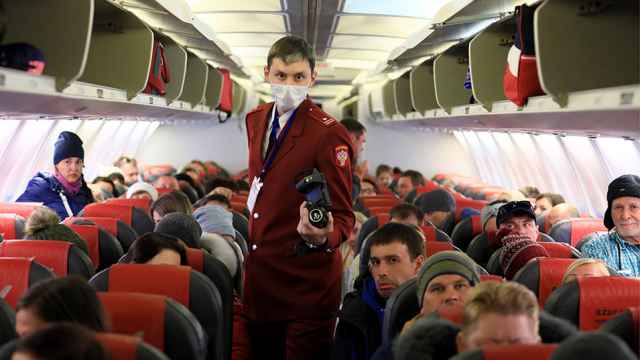Authorities in southern Russia say they will deploy uniformed Cossacks alongside police officers on New Year’s Eve to enforce a ban on mass celebrations due to the coronavirus pandemic.
Krasnodar region Governor Venyamin Kondratyev called off Christmas and New Year celebrations to slow the spread of Covid-19 as the popular domestic tourism destination saw record-breaking case numbers in November. The Krasnodar region, with a population of 5.6 million, has officially confirmed 23,636 coronavirus infections and 668 deaths as of Wednesday.
“More than 7,500 Cossacks will be involved in protecting public order,” Kondratyev said at a meeting among regional leaders Wednesday.
“I ask the police to organize watches on central squares in cities and villages to prevent spontaneous festivities,” the Krasnodar region administration quoted him as saying on its website. “We need to strengthen patrols where there will be clusters of people.”
The governor urged traffic police and local leaders to organize security, emergency services and snow removal equipment for the likely influx of motorists from outside the region during the holidays.
Authorities will also step up inspections of fireworks vendors to root out uncertified products, the Krasnodar administration said.
“There will be no mass celebrations or New Year’s concerts this year,” Kondratyev said.
Imperial Russia-era military societies known as Cossacks were nearly rendered extinct under the Soviet policy of “Decossackization” until the 1990s, when then-President Boris Yeltsin issued a decree on their revival as an “ethno-cultural” group.
Championed as a symbol of patriotism as the Kremlin made a return to conservative values, Cossack groups have mushroomed across Russia under President Vladimir Putin.
A Message from The Moscow Times:
Dear readers,
We are facing unprecedented challenges. Russia's Prosecutor General's Office has designated The Moscow Times as an "undesirable" organization, criminalizing our work and putting our staff at risk of prosecution. This follows our earlier unjust labeling as a "foreign agent."
These actions are direct attempts to silence independent journalism in Russia. The authorities claim our work "discredits the decisions of the Russian leadership." We see things differently: we strive to provide accurate, unbiased reporting on Russia.
We, the journalists of The Moscow Times, refuse to be silenced. But to continue our work, we need your help.
Your support, no matter how small, makes a world of difference. If you can, please support us monthly starting from just $2. It's quick to set up, and every contribution makes a significant impact.
By supporting The Moscow Times, you're defending open, independent journalism in the face of repression. Thank you for standing with us.
Remind me later.






